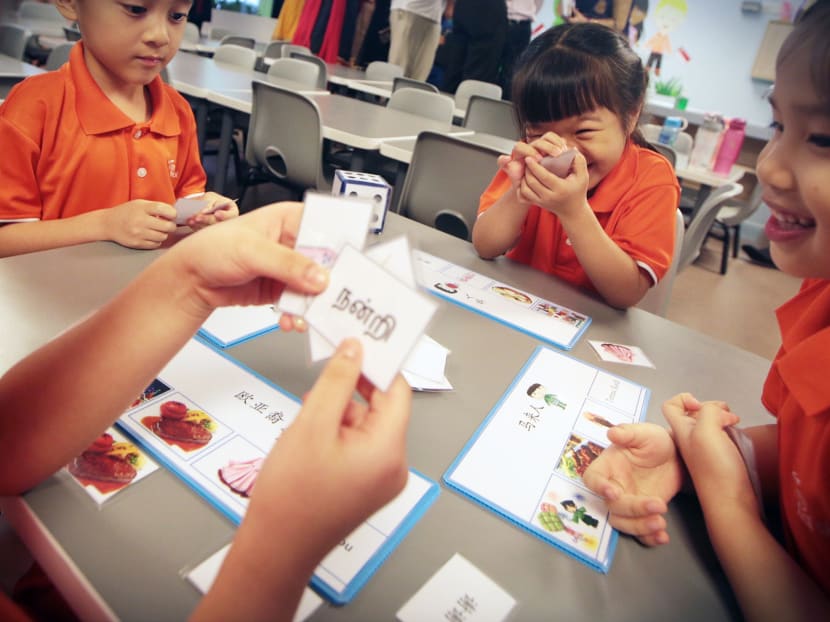Blog
Motivating Bilingualism in Children
By Chan Hoi Ki on 14/07/2022

This article is mainly for families whose mother tongue language is not English (i.e English is their majority language used in the country) and for parents who are somewhat effectively bilingual themselves.
Parents play an important role in the child’s learning journey, whether or not the parent becomes the teacher or the parent engages another to assist in the teaching.
This applies to cultivating bilingualism in children as well, as the parent you should also be equally as motivated to learn and practise with your child. This creates the nurturing environment for both you and your child to develop your mother tongue together.
Do you know when you should start cultivating bilingualism? These methods can start as early as the moment they are born – as the parent you may very well be holding a one-sided conversation most of the time but this encourages your kid to start picking up some words and attempt to talk! Below are some ways you can try depending on the age group of your child.
Babies & toddlers:
- Begin talking to your child in their mother tongue from the start as a habit
- Sing songs in your mother tongue! Music and sounds are easier for kids to get a hold of. You can also incorporate dancing or body movements too!
- Repeat and reaffirm what your kid says – despite it just being gibberish or babbles, this gives your kid the confidence on what they are saying
- Acknowledge and hold a conversation to their babbles (eg. waiting for an answer)
- Read books in your mother tongue to your kid – discuss the plot with them
- Adding on to their vocabulary (eg. if your kid acknowledges it is a “car”, you can add on to say “it is a red car.”)
Preschool:
- Continue speaking in mother tongue and having a two-way conversation
- Engage your child to speak with relatives who are more familiar or can only speak in mother tongue
- Introduce words in your mother tongue whenever your child points out an object in English – reaffirm them that it is correct and give the word in mother tongue
School-age:
Starting school will definitely place your child back in an environment surrounded by the majority language eg. English. The balance will tip back in favour of the majority language, but you can counter that by having the mother tongue/minority language spoken mostly at home.
- Continue having conversations in your mother tongue at home or strictly in certain situations. Do not punish your kid however, if they decide to use their majority language sometimes.
- You can add on incentives to encourage your kid to only use their mother tongue in certain situations
- Play board or card games with instructions in your mother tongue – read out the instructions and guide your child on how to play in that language
- Continue to sing songs in mother tongue – find out what songs they are learning at school and sing together
- Be patient and listen – your kid might need some time to get their words together
Check out our Prep Junior app available for download from the App Store / Google Play Store!
Through an interactive story-based adventure, Prep Junior introduces children to food, various places of interest, and multicultural scenes; using fun and original illustrations that replicate real scenes in Singapore.
Sign up to download the Prep Junior Home-learning Kit, specially crafted by our educator experts!


